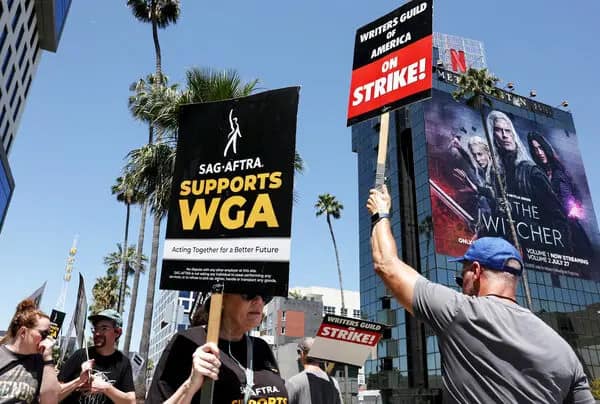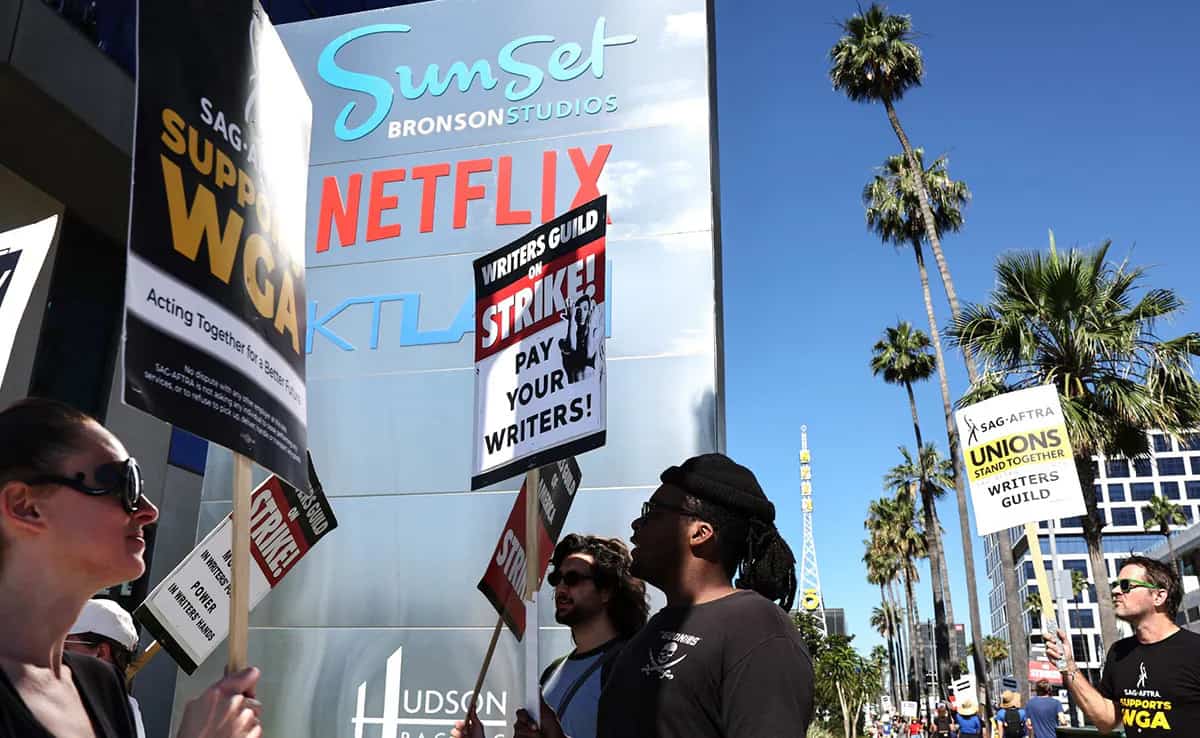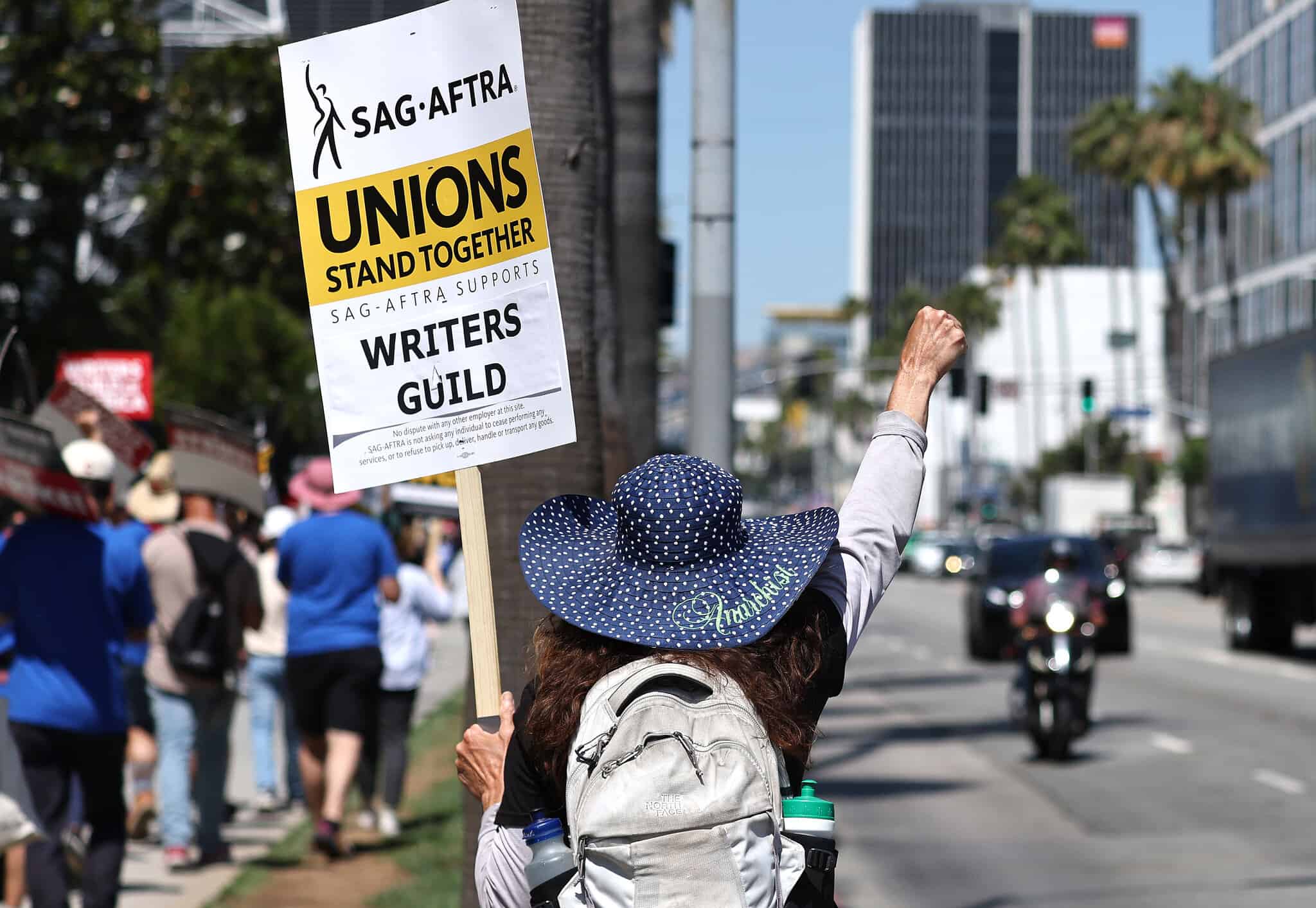On Thursday, Hollywood’s union authorized a strike, marking the first time in 43 years that such a decision has been made. This move effectively halted a $134 billion American movie and television industry due to concerns over wages and apprehensions regarding a future dominated by technology.
At the stroke of midnight on Thursday, tens of thousands of Hollywood actors will go on strike, causing a major standstill in the colossal movie and television industry. This industry-wide walkout will see actors joining writers in their collective action.
After the last minutes of negotiations with studios failed to reach a satisfactory agreement on their demands concerning falling wages and the larger evident threat of artificial intelligence, The Screen Actors Guild (SAG-AFTRA) has issued a strike order.
Why is the Screen Actors Guild going on strike?
Following the breakdown of negotiations between studios and SAG-AFTRA, the leading union representing 160,000 television and movie actors, the decision to go on strike was announced. Streaming services and artificial intelligence merged as key points of contention in the standoff. Beginning on Friday, actors will stand alongside screenwriters, who initiated their strike in May, by forming picket lines in various American cities including New York and Los Angeles, as well as other locations where scripted shows and movies are produced.

Also Read:Beyoncé Fever Strikes Stockholm: Twin concert spectacle Accused of inflating Swedish economy
This dual strike, involving both actors and screenwriters marks a significant event as it has not occurred since 1960. During that time, Marilyn Monroe was still an active film star, and Ronald Reagan served as the head of the actors’ union. Now, more than 170, 000 works find themselves united in the effort, pitted against traditional studios such as Disney, Universal, Sony, and Paramount, as well as tech giants including Netflix, Amazon, and Apple. The collective action consists of a wide range of industry professionals, intensifying the impact on the entertainment landscape.
Screenwriters are concerned about the potential use of AI by studios to generate scripts, which could impact their job opportunities and creative control. On the other hand, actors share concerns over the use of artificial intelligence to create digital replicas of their likenesses or manipulate their performances without proper compensation and consent.
What Fran Drescher, president of SAG-AFTRA has to say on the strike
During a news conference held in Los Angeles on Thursday, Fran Drescher, the president of SAG-AFTRA, expressed her shock and disappointment at the treatment received from the industry partners they have collaborated with. She highlighted the significant differences and disagreements on various subjects, as well as the studios’ claim of financial losses while giving out generous hundreds of millions of dollars to their CEOs. Fran Drescher described this situation as disgusting and expressed her disdain, condemning their actions and calling for accountability.
Also Read:WGA Writers Go On A Strike, Halting TV Show Productions

Also Read:Attack on Titan, My Hero Academia Storm the Hollywood Critics Association TV Awards Nominations
Expressing her frustration and anger, Fran Drescher emphasized the transformative impact of streaming on the entire business model of the entrainment industry. She further acknowledged the imminent influence of artificial intelligence, which is expected to bring future changes. Fran Drescher considers the current moment as a critical turning point in history, a moment that demands truth and actions. She stressed the necessity of standing up and refusing to accept the current circumstances any longer.
The ongoing strike has caused the shutdown of numerous productions and film sets, causing significant delays for popular television series. Movie studios are already reshuffling their dates. However, if the strike gets stretched, there is the possibility that major films release could also be postponed.
The impact of the strike is reverberating across the entertainment industry, affecting both television and film productions and potentially causing a ripple effect on upcoming releases.




